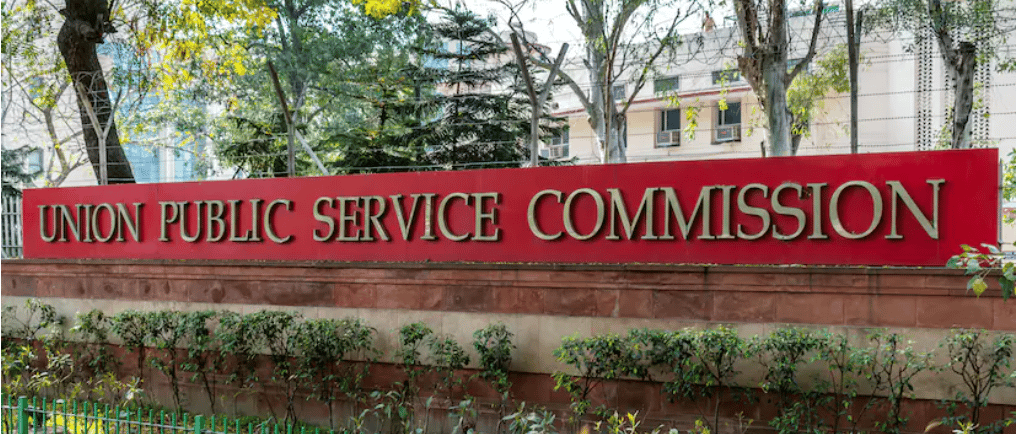UPSC Civil Services Examination Syllabus
Complete UPSC Civil Services Examination (CSE) syllabus categorized stage-wise: Prelims, Mains (GS & Optional), and Interview (Personality Test).
6/5/20252 min read


The UPSC CSE is conducted in three stages:
Preliminary Examination (Objective)
Mains Examination (Descriptive)
Personality Test / Interview
Stage 1: Preliminary Examination (Objective Type)
➤ Paper I: General Studies (GS) - 200 Marks
Current events of national and international importance
History of India and Indian National Movement
Indian and World Geography – Physical, Social, Economic Geography of India and the World
Indian Polity and Governance – Constitution, Political System, Panchayati Raj, Public Policy, Rights Issues, etc.
Economic and Social Development – Sustainable Development, Poverty, Inclusion, Demographics, Social Sector Initiatives, etc.
General issues on Environmental Ecology, Biodiversity and Climate Change (no subject specialization required)
General Science
➤ Paper II: CSAT (Civil Services Aptitude Test) - 200 Marks
(Qualifying in nature – 33% required to pass)
Comprehension
Interpersonal skills including communication skills
Logical reasoning and analytical ability
Decision-making and problem-solving
General mental ability
Basic numeracy (Class X level)
Data interpretation (Class X level)
Stage 2: Mains Examination (Descriptive Type)
Compulsory Papers (Qualifying)
Paper A: Indian Language (any from the Eighth Schedule) – 300 Marks
Paper B: English – 300 Marks
Merit Ranking Papers
➤ Paper I: Essay – 250 Marks
Write two essays from given topics. Emphasis on clarity, coherence, and relevance.
➤ General Studies Papers
✅ Paper II: GS I – 250 Marks
Indian Heritage and Culture
History and Geography of the World and Society
Ancient, Medieval, Modern History of India
Freedom Struggle
Post-independence Consolidation
World History (18th century onwards)
Indian Society, Diversity, Globalization
Role of Women, Social Empowerment
Population and related issues
Salient features of Indian and World Geography
✅ Paper III: GS II – 250 Marks
Governance, Constitution, Polity, Social Justice, and International Relations
Indian Constitution, Amendments, Features
Separation of Powers, Judiciary, Executive
Parliament and State Legislatures
Governance: Transparency, Accountability
Social Justice: Schemes for vulnerable sections
NGOs, SHGs, Welfare schemes, Education, Health
International Relations and Organizations
India’s relations with neighboring countries
✅ Paper IV: GS III – 250 Marks
Technology, Economic Development, Bio-diversity, Environment, Security, and Disaster Management
Indian Economy & Planning
Inclusive Growth
Budgeting, Agriculture
Infrastructure – Energy, Ports, Roads, Airports
Science and Technology – Developments and Applications
Environmental Conservation
Disaster and Risk Management
Internal Security, Cybersecurity
Linkages of organized crime with terrorism
Role of external state and non-state actors
✅ Paper V: GS IV – 250 Marks
Ethics, Integrity, and Aptitude
Ethics and Human Interface
Attitude, Aptitude, and Foundational Values
Emotional Intelligence
Moral Thinkers and Philosophers
Civil Service Values and Ethics in Governance
Probity in Governance
Public/Civil Service Code of Conduct
Case Studies
Optional Subjects (Any one – 2 papers of 250 marks each)
➤ Paper VI & VII: Optional Subject – 500 Marks total
You can choose one subject from the following list:
Agriculture
Anthropology
Animal Husbandry & Veterinary Science
Botany
Chemistry
Civil Engineering
Commerce & Accountancy
Economics
Electrical Engineering
Geography
Geology
History
Law
Management
Mathematics
Mechanical Engineering
Medical Science
Philosophy
Physics
Political Science & International Relations
Psychology
Public Administration
Sociology
Statistics
Zoology
Literature of any one language (from the 8th Schedule)
Stage 3: Personality Test / Interview – 275 Marks
Conducted by the UPSC Board to assess:
Mental alertness, critical powers of assimilation
Clear and logical exposition
Balance of judgment, intellectual and moral integrity
Leadership, decisiveness, and social skills
Total Marks for Final Merit
Mains (Essay + GS + Optional) = 1750 Marks
Interview = 275 Marks
Total Marks for Final Merit = 2025 Marks
We will discuss the detailed syllabus for each paper in next article.
